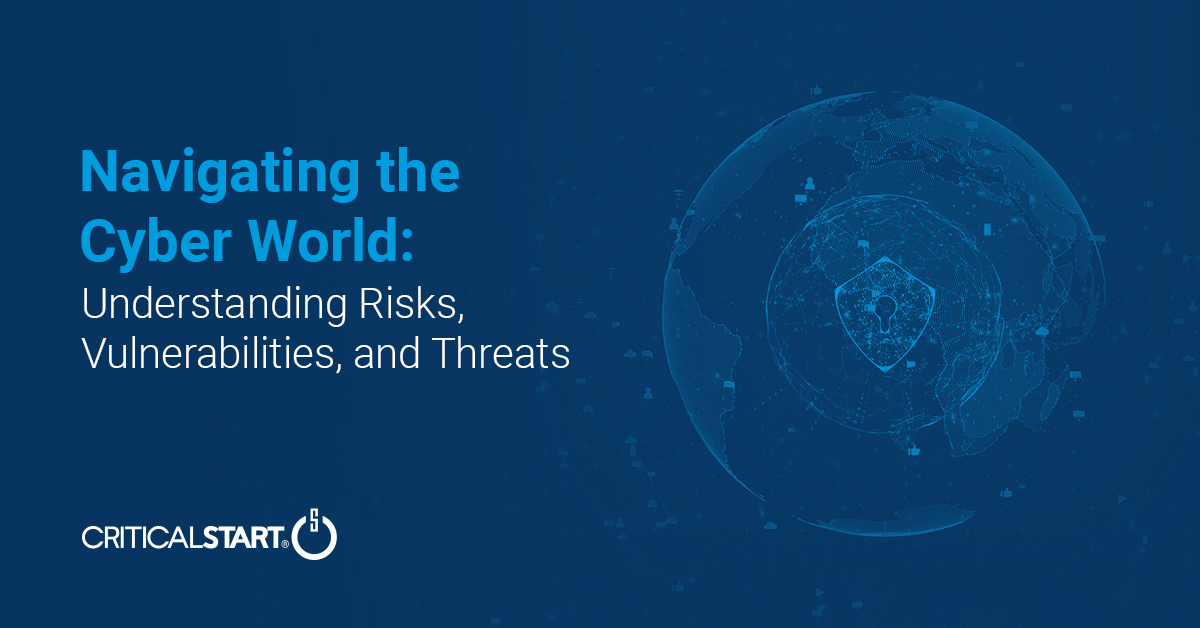- Services
- Solutions
- Why Critical Start?
- Resources
- About
- Partner Programs
- Breach Response
- Contact an Expert
- Intelligence Hub
Who’s Going to Derail the U.S. Presidential Election? The Culprit May Be Close to Home
WASHINGTON – Fearing nightmare scenarios such as attacks on voter registration databases and state websites tallying results, U.S. officials are leading simulated training exercises to get ready for Nov. 3.
The “tabletop exercises,” to be held virtually because of coronavirus, will include thousands of state and local election officials in addition to intelligence and cybersecurity officials in Washington amid concerns about threats from Russia, China, and other countries.
“We try to make it a pretty bad day,” said Matthew Masterson, an adviser with the Cybersecurity and Infrastructure Security Agency, or CISA, part of the Department of Homeland Security. CISA is charged with helping to protect the nation’s critical infrastructure from cyber and physical attacks, including its election systems.
Still, Masterson and other experts say the U.S. is now far better prepared to weather potential election meddling by Russia or other foreign adversaries than in 2016 when the Kremlin hacked into Democratic Party emails and orchestrated a sophisticated disinformation campaign designed to help elect then-candidate Donald Trump.
CISA officials have worked with state and local election authorities to identify vulnerabilities in voter registration databases, dispatched cybersecurity experts to look for intrusions, and improved communication among states, campaigns, and U.S. intelligence officials about the threat landscape. The training exercises will game out scenarios, including foreign disinformation campaigns, cyberattacks on election infrastructure, or simply overwhelmed and understaffed polling places across the country.
Yet the threat has also morphed, with adversaries such as China, Iran, and North Korea joining Russia to meddle in U.S. politics and using ever-changing tools and tactics. Meanwhile, some fear the U.S. political climate is so polarized – due to coronavirus and tensions over police violence and other divisive issues – that America’s enemies will have a lot of fodder to work with as they seek to stoke discord.
“They don’t need to make any fake news this time around because there’s just constant disinformation all across the political landscape,” said Clint Watts, a research fellow with the Foreign Policy Research Institute, a think tank. “It’s free ammunition.”
Here’s who could mess with the 2020 presidential election.
Russia
Russia remains the most concerning foreign actor in terms of U.S. election interference, although there is a growing focus on China and Iran as well, according to a U.S. intelligence official who was not authorized to speak on the record.
Intelligence officials told lawmakers in the House of Representatives in February that Russia was already interfering in the 2020 campaign to try to get Trump re-elected, according to the New York Times and other outlets.
In a recent analysis, Watts noted that last year, Facebook took down accounts associated with a Kremlin’s troll farm that was promoting Trump, denigrating his Democratic opponent, Joe Biden, and boosting Bernie Sanders, one of Biden’s primary opponents. And in March, Facebook closed another Russian troll farm operation that appeared to be trying to infiltrate American minority groups on Facebook and Instagram, “presumably hoping to divide the political left and influence voters headed into Election Day,” he said.
Rob Davis, CEO of CRITICALSTART, a Texas-based company that monitors security breaches from nation-states and advises its clients about defensive measures, said that Moscow, in a re-run of 2016, will most likely use aggressive social media campaigns and targeted cyber operations to try to smear candidates and aggravate social tensions on issues such as race and immigration. Russian hackers could also renew attempts to hack voter databases and compromise U.S. election infrastructure.
“Russia’s goal is to be disruptive. Often it has no agenda beyond that,” Davis said.
China
China insists it has no interest in meddling in the U.S. election despite repeated accusations from Trump that Beijing prefers Biden and that “China will do anything they can do to have me lose this race.”
Google disclosed in June that hackers based in China sought to infiltrate the email accounts of staffers working on Biden’spresidential campaign. But there is little further concrete evidence that China is waging a sophisticated operation aimed at backing a specific candidate or wants to remove Trump, even though Washington and Beijing have drifted toward a new Cold War amid tensions over the coronavirus pandemic, trade, territorial disputes in the South China Sea and human rights.
China doesn’t like Trump, said Watts of the Foreign Policy Research Institute, but because Trump has overseen a U.S. retreat from the world stage, that has given Beijing a freer hand to extend its own influence. And China’s President Xi Jinping is more interested in crushing Chinese dissidents, stealing intellectual property and expanding the reach of its 5G network than in influencing the U.S. election, he said.
“China’s battle plan is more about espionage to access information and spying on political parties to get a potential preview of U.S. policy changes or shifts regarding the military and planning for different outcomes,” said CRITICALSTART‘s Davis.
Iran
Google also said in June that Iran-based hackers tried to gain access to Trump campaign accounts, and Microsoft said late last year that Iranian hackers, with apparent backing from the government in Tehran, had made more than 2,700 attempts to hack into the email accounts of current and former American government officials, journalists covering political campaigns and accounts associated with a presidential campaign.
The earlier hacking attempts coincided with a period when the Trump administration was imposing additional sanctions on Iran after the U.S. pulled out of a nuclear deal with Tehran and world powers, dealing a major blow to Iran’s economy.
But Iran, according to Watts, has “very limited reach” when it comes to spreading misinformation. “They can’t sustain the content the way the Russians and the Chinese do,” he said, adding that in terms of cyberattacks “they’re kind of reckless and silly, and they get caught a lot, which is why we keep hearing about it.”
One example:
In early January, the Federal Depository Library Program’s website was briefly taken offline after a hacker uploaded photos to the site that included an Iranian flag and an image depicting a bloodied Trump being punched in the face.
The website was also modified to say: “Hacked by Iran Cyber Security Iranian Hackers: This is only (a) small part of Iran’s cyber ability!”
Homegrown Disputes and Problems
“Whether it’s threats of Chinese interference, Iranian interference, Russian interference, or North Korean interference, any country – or even non-state actors who now have capabilities to try to meddle in our elections – know that this administration takes seriously its responsibility to make sure every American’s vote is counted, counted properly and that foreign influence is minimized in its ability to impact an outcome of an American election,” Secretary of State Mike Pompeo said during a forum on the future of national security hosted by The Hill newspaper on July 15.
But Trump continues to play down Russia’s malign role in the 2016 election. And rather than focusing on possible foreign interference, he has blasted Democrats for trying to expand mail-in voting amid the coronavirus pandemic, alleging without evidence that it is an invitation to fraud.
“RIGGED 2020 ELECTION: MILLIONS OF MAIL-IN BALLOTS WILL BE PRINTED BY FOREIGN COUNTRIES AND OTHERS. IT WILL BE THE SCANDAL OF OUR TIMES!” the president tweeted last month.
Voting experts and officials have characterized Trump’s allegations as a bogus conspiracy and noted safeguards that states use to protect the authenticity of absentee ballots and envelopes.
Lawrence Norden, director of the Election Reform Program for the Brennan Center for Justice at the New York School of Law, called Trump’s assertion “nonsense” and noted that mail-in ballots must be returned in secrecy envelopes created by local election authorities. He said the envelopes are bar-coded in many states with a unique identifier that ties the ballot to the voter.
“(Trump’s) rhetoric is right out of the Russian playbook” and “designed to cast doubt about our democratic processes and about the integrity of elections,” said Elaine Kamarck, an expert on American electoral politics and a senior fellow in governance studies with the Brookings Institution, a left-leaning think tank.
“I can’t imagine what a foreign adversary can do that the U.S. isn’t already doing to itself” in terms of fueling division and churning out disinformation,” Watts said.
Less than four months to the vote, there are signs of the different forms this disorder could take on Election Day:
- In early July, armed right-wing activists flocked to fake Antifa protests in Pennsylvania and other places – planning to confront left-wing activists and anarchists at events that never materialized and were falsely trumpeted online.
- On Wednesday, a major breach in Twitter’s security allowed hackers to break into the accounts of leaders and technology moguls, damaging trust in a platform used by politicians and corporate leaders to communicate directly with the public. The hack was related to a Bitcoin scam, but it nevertheless spotlights the potential for nefarious actors to sabotage high-profile voices to meddle in the political process.
- Primary elections in Wisconsin, Georgia, and other states have exposed major problems with holding an election during the coronavirus pandemic, which has sparked stay-at-home orders and social distancing rules. Among the issues: long lines, a shortage of polls workers, and faulty voting machines. Tech problems played a role throughout a botched Democratic primary caucus in Iowa in February.
Robby Mook, who ran Hillary Clinton’s 2016 presidential campaign and now works on a Harvard University project to develop strategies and tools to protect U.S. elections against foreign attacks, said he was less worried about Russian hacking than about massive logistical problems on Election Day exacerbated by the pandemic.
“We’re hacking our own election by not resourcing it well,” Mook said in an interview with Campaign HQ, a political podcast. Local election officials “don’t have what they need to be robust when trouble comes.”
Perhaps most worrying of all – what CRITICALSTART‘s Davis described as “terrifying” – is if either the American public or the candidates themselves don’t believe the official results are accurate. In an interview with “The Daily Show” host Trevor Noah last month, Biden warned that military officers could remove Trump from the White House if he loses the vote, but refuses to leave.
“I promise you, I’m absolutely convinced they will escort him from the White House with great dispatch,” Biden said. The Trump campaign responded to Biden by saying: “President Trump has been clear that he will accept the results of the 2020 election.”
Featured in USA TODAY | July 17. 2020
-
![]()
CISO Perspective with George Jones: Building a Resilient Vulnerability Management Program
In the evolving landscape of cybersecurity, the significance of vulnerability management cannot be o...![]()
Navigating the Cyber World: Understanding Risks, Vulnerabilities, and Threats
Cyber risks, cyber threats, and cyber vulnerabilities are closely related concepts, but each plays a...The Next Evolution in Cybersecurity — Combining Proactive and Reactive Controls for Superior Risk Management
Evolve Your Cybersecurity Program to a balanced approach that prioritizes both Reactive and Proactiv...![]()
CISO Perspective with George Jones: The Top 10 Metrics for Evaluating Asset Visibility Programs
Organizations face a multitude of threats ranging from sophisticated cyberattacks to regulatory comp...![]() Webinar
WebinarVulnerability Management’s Critical Role in Guarding Against Cyber Threats
Did you miss Critical Start’s webinar on Vulnerability Management? Watch the recap as Chris Ca...![]() Press Release
Press ReleaseCritical Start Introduces Cybersecurity for Operational Technology (OT) with Upcoming Launch of Tailored MDR Service
PLANO, TX, April 24, 2024 – Today, Critical Start, a leading provider of Managed Detection and...![]() Quick Card
Quick CardCritical Start Security Services for SIEM and Sumo Logic® Cloud SIEM
Critical Start offers a comprehensive solution that helps Sumo Logic SIEM customers achieve the full...
Newsletter Signup
Thanks for signing up!





